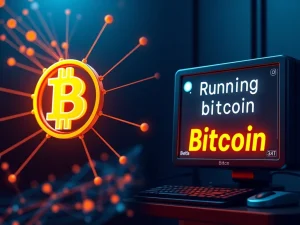Solana ETF Breakthrough: How 21Shares’ Revised SEC Filing Could Reshape Crypto Investments

The crypto world is buzzing with anticipation as 21Shares submits a revised S-1 filing for a Solana spot ETF to the SEC. This pivotal move could unlock unprecedented institutional access to blockchain assets while setting new standards for crypto investment products. Here’s why this development matters.
Why the Solana ETF Filing Marks a Regulatory Turning Point
The SEC’s cautious approach to crypto ETFs is evolving, with 21Shares’ revised application addressing critical concerns:
- Custody solutions: Coinbase Custody Trust as designated custodian
- Staking transparency: Clear third-party management protocols
- Market surveillance: Enhanced manipulation prevention measures
Solana’s Institutional Appeal: Beyond the Hype
What makes Solana stand out in the crowded blockchain space?
| Feature | Advantage |
|---|---|
| High throughput | 50,000+ TPS capability |
| Low fees | Fractional Ethereum gas costs |
| Energy efficiency | Proof-of-History consensus |
Investment Potential: Why This Solana ETF Matters
The proposed product offers unique advantages:
- Direct exposure to SOL without custody complexities
- Potential staking rewards component
- Increased liquidity and price stability
FAQs: Understanding the Solana ETF Landscape
Q: When will the SEC decide on the Solana ETF?
A: The current deadline for final rulings is October 10, 2025.
Q: How does this differ from Bitcoin ETFs?
A: The Solana ETF may include staking rewards, adding a yield component absent in Bitcoin products.
Q: What are the risks of investing in a Solana ETF?
A: Primary risks include regulatory rejection and Solana network stability concerns.
Q: How might this affect SOL’s price?
A: Approval could drive significant institutional demand, while rejection may cause short-term volatility.










